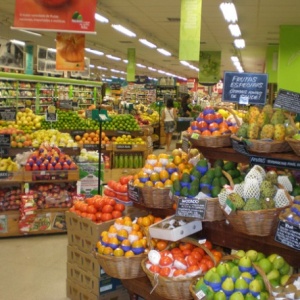
This paper on sustainable diets, published in Biological Agriculture and Horticulture, provides evidence on the most effective ways to influence consumers to adopt sustainable diets. The evidence comes from a pilot study on a group of 163 Australians who would be expected to be ‘early adopters’ of a sustainable diet (due to their higher than average education and income).
Priority areas are identified for behavioural change in relation to the types of food purchased, how they have been produced and the individual's food provisioning behaviour. After having been presented with evidence on what behaviour changes that lead to a more sustainable diet, respondents were asked how likely they are to make changes to their diets in certain areas such as reducing meat and dairy intake and increasing fruit and vegetable consumption. Their knowledge and willingness to change were explored through focus group interviews and self-reporting questionnaires.
The result from this pilot study among potential “early adopters” show that around 70% support the idea of sustainable diets (saying they are willing to, for example, reduce their food waste and their intake of junk food) but only 1 in 10 Australians in the study are actively engaged in changing their diets in one of the four priority areas (meat, dairy, junk food and food waste). The most promising area for change is identified as reducing the intake of junk food.
Abstract
To address imminent concerns of global food security and agricultural sustainability, international research activities are increasingly focusing on ways of improving the food system's efficiency and effectiveness at providing nutritious food for all in an environmentally sustainable manner. A significant component of this will involve understanding and ultimately influencing people's dietary choices. However, for people-oriented intervention strategies to be effective, the gaps between existing behaviour and what is required for environmentally sustainable and healthy food choices must be specified. This paper identifies priority areas for behavioural change in relation to the types of food purchased, how they have been produced and the individual's food provisioning behaviour. In order to determine the most effective ways to influence people's consumption behaviour in light of these priority areas, the authors conducted a pilot study on a group of 163 Australians who would be expected to be ‘early adopters’ of a sustainable diet. Results show that only around 1 in 10 are presently actively engaged in reducing the environmental impact of their diets in these priority areas. Hence, there is a significant need to engage many more people in sustainable dietary behaviours. Furthermore, it was found that areas where interventions are most likely to have the largest impact, based on high cost to the environment and likelihood of citizens changing their behaviour, are reducing the amount of food waste generated in the household and lowering the amount of junk food eaten.
Citation
Pearson, D., Friel, S., Lawrence M., Building environmentally sustainable food systems on informed citizens choices: evidence from Australia, Biological Agriculture & Horticulture: An International Journal for Sustainable Production Systems, Vol 30, Issue 3, 2014 pages 183-197, DOI:10.1080/01448765.2014.890542
You can access the paper here (with journal subscription).
Read more about healthy and sustainable diets on our website here. You may be interested on FCRN own material on this issue, such as our discussion paper: What is a sustainable healthy diet? here. For our report Changing what we eat: a call for research & action on widespread adoption of sustainable healthy eating see here. And for our discussion paper Changing consumption: how can we change the way we eat? see here.







Post a new comment »